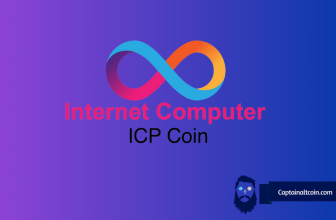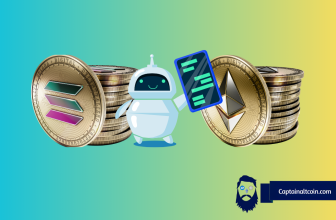
EOS just can’t seem to catch a break from all the controversy. Dan Larimer, the CTO of block.one and the lead developer of the EOS project, published a medium post in which he suggested that EOS could benefit from setting up a new constitution.
Claiming how the recent struggle of his platform has been a learning experience of sorts, Larimer goes on to accept that the current constitution gives too much power to the network arbiters. He states the following:
“I have seen that if you give people arbitrary power to resolve arbitrary disputes then everything becomes a dispute and the decisions made are arbitrary. The more power the arbiter has, the more vicious and petty the disputes become and the less predictable the outcome.”
This is seemingly an acknowledgement that recent actions performed by the network dispute arbitrators aren’t exactly fitting of a decentralized blockchain platform. The actions in question concern the recent order by the network arbitrator – that was given to the 21 block producers who were in charge of the EOS block producing – to freeze 27 accounts that have been compromised by hackers and scammers.

The network arbitrators operate under the EOS Core Arbitration Forum, aka ECAF, and their decision brought about a lot of ire and concern from the EOS community and outsiders alike. Many questioned EOS’ ability to remain decentralized when a central entity like ECAF can have so much power over the entire network.
You can read review of Breadwallet, Armory wallet review and Edge (aka Airbitz) wallet guide.
EOS has been using what is known as Ricardian contracts, which are contracts that employ both the “Code is Law” principles and regular legal prose to ensure the safety and enforcement of the contract terms. The regular side of these contracts contains some free-form terms that are often times subject to personal interpretation. This is why the EOS constitution need to be full of guidelines that will ensure everyone will understand the rules and not enforce a personal interpretation of said rules.
“If everything on the blockchain is subject to mob-rule, then no one is safe. If the community does not have strong, objective, organizing principles, then everything is subject to interpretation and becomes unpredictable and arbitrary,” wrote Larimer in his post.
Finally, he called for ending all arbitration oversight other than rendering “non-binding opinions on the intent of the code”. For issues like determining if an account should be freezed, Larimer suggests that block producers need to serve as a jury that will need to achieve two thirds + 1 majority (15 votes) to freeze or replace broken contracts. Read the full post with a list of suggestions on how to move forward here.
Per Larimer, a proper Ricardian contract would be completely enforced by code, which means all disputes should be fixed through the code contained in the smart contracts. These proposals seemingly strip the ECAF of most of its powers, as social media users commented. Some people reacted positively to this, claiming that putting limits on ECAF was the right step going forward.
Others weren’t so happy about the decision. Sam Sapoznick, the arbitrator who signed the order to freeze the mentioned 27 addresses claimed that Larimer’s involvement in EOS related discussions was inappropriate.
“You may be making overtures in a direction which could sabotage the entire project by undermining or completely dissolving the so-far reasonably-well-respected thesis that the main-net is independent of B1’s [Block.one’s] control and influence.”
The accounts in question were compromised during the problematic EOS mainnet launch vote, where total havoc was created because there was no official voting interface supplied by block.one. This allowed scammers to hand out fake addresses that some people were fooled into sending their coins to. These addresses were frozen and the funds on them won’t be returned to the users.
Larimer can’t seem to do much right currently, and his job is made even harder by the constant spotlight that is being pointed on him by both the EOS community and the general crypto public. Nick Szabo, the father of smart contracts, feels like the surface of what can go wrong here hasn’t even been scratched:
“EOS didn’t even begin to scratch the surface of what can go wrong with freezing or reversing transactions, which on a blockchain that spans 100s of human languages and 1000s of jurisdictions, can be deemed bad in a dizzying variety of ways, few of which can be well anticipated.”
It’s hard to say if and what will be the next EOS hick-up. All we know is that the project is standing on some seriously shaky legs as is and further controversy could have devastating effects.






